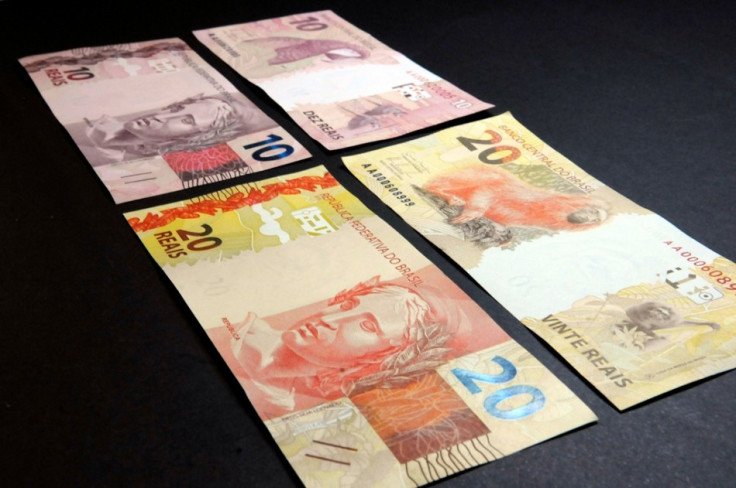Brazil Announces $60bn Currency Intervention Programme to Boost Real

Brazil's central bank has announced a multi-billion dollar programme in order to contain the steady decline in the value of its currency against the US dollar.
Under the planned currency-intervention programme, the central bank will provide $60bn (£38bn, €45bn) worth of cash and insurance to the foreign exchange market by the end of 2013.
"With the objective of providing currency hedging to economic agents and liquidity to the currency market, the central bank of Brazil will start, from this Friday, a programme of currency swap auctions and the sale of dollar repurchase agreements," the central bank said.
The plan involves the central bank spending $500m per day on Mondays to Thursdays and $1bn on Fridays to buy reals in the currency markets. On Mondays and Fridays, the bank will target derivative markets hedging currency exposure of companies and investors, and it will buy currency directly on Fridays in return for US dollars.
Brazil has already announced swap and credit-line actions worth $45bn in 2013, but the remedial actions were without an established schedule.
Decline in Brazilian Real
The real along with several other emerging market currencies is facing a slump against the US dollar, amid concerns surrounding the scaling back of a massive $85bn-a-month stimulus programme by the US Federal Reserve.
As a result of the fears, international investors are increasingly looking to sell their emerging-market assets.
Among emerging economies, India has been the most affected in Asia, with its currency falling to all-time lows against the US dollar.
Brazil's real has also been hit by the US move and the currency is heading to a five-year low against the US dollar. It has fallen 16% against the dollar since May.
The dollar was trading at 2.44 reais, down 0.77%, as at 11:00am BST.
Inflation Concerns
The weakness in the currency has raised Brazil's import costs, resulting in a high cost of living for the population. The government is now afraid that the rising inflation in the country - more than 6% at present - could spiral out of control.
In addition, the Brazilians who have taken loans denominated in foreign currencies are troubled, as they have to repay more in interest and capital.
Amid adverse economic conditions, the Brazilian government has lowered its outlook for gross domestic product (GDP) growth to 2.5% from 3% in 2013 and to 4% from 4.5% for 2014.
© Copyright IBTimes 2024. All rights reserved.






